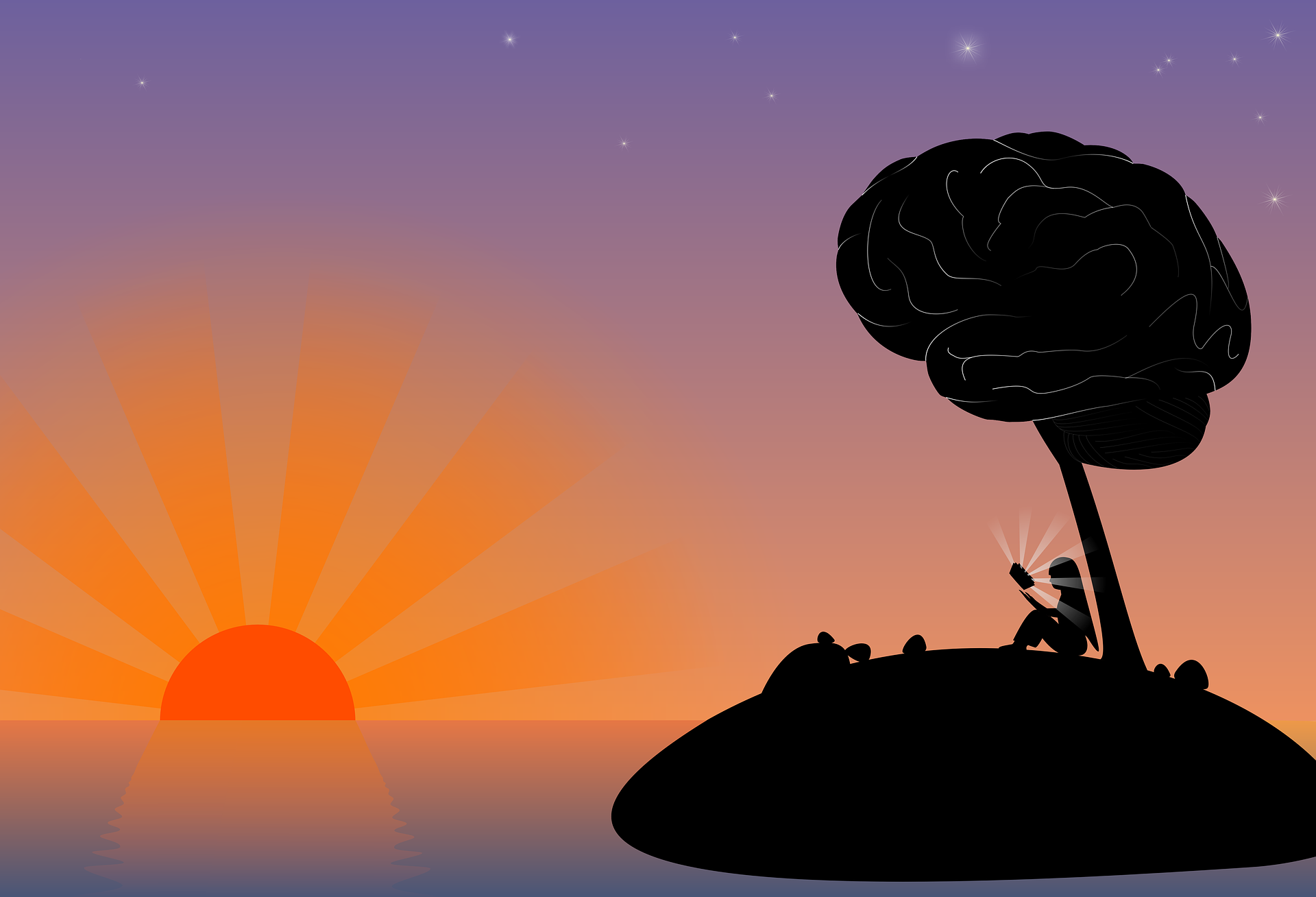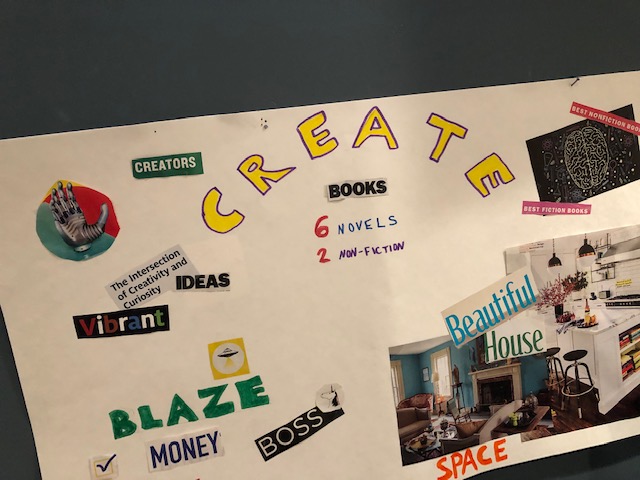Struggling with setbacks and challenges? A shift in thinking called growth mindset can help you overcome, and even thrive in tough situations.
Maybe you find yourself in a situation such as the following…
- You want to be a writer, and you’ve published your first book, maybe you’ve even followed it up with a second. Book sales have been sluggish. You’re afraid that you’re not good enough, that you don’t have the talent to be a successful author.
- After years of hardwork, you are suddenly laid off. You are shocked, hurt, and not sure what to do next.
- You want to get promoted, but first, you’re required to take a certification that culminates in a difficult exam. You procrastinate and avoid getting started because you don’t think you have the time, energy, or smarts to pass.
- You got a new job (congrats!!), but it’s your first month and you’re feeling overwhelmed. You don’t want to look stupid, so you fake it till you make it. However, you’re not doing as well as you expected. You think your boss is judging you and will soon determine you’re not as smart or talented as you led her to believe in your interview. You start to retreat and avoid interactions with your boss.
Many of us are facing or have been in situations like these at some point in our life. All of the above ways of thinking are examples of fixed mindset beliefs, and can hold you back.
It’s possible to overcome these types of situations by making a shift in your attitude toward a growth mindset. This mindset shift is backed up by research and proven results. Changing your beliefs in this way will help you accomplish more and live a happier life.
What is growth mindset?
Growth mindset is a social psychology theory put forward by Stanford Professor Carol Dweck, in her influential book Mindset: The New Psychology of Success.
She asserts that generally people can be placed on a continuum according to their views on where ability comes from.
Those with a “fixed” mindset believe that intelligence / talent / ability is innate—you’re born with it. Being smart or a talented athlete is fixed and unchangeable. You either have it or you don’t. Think of Michael Jordan—seems like he was born to play basketball, right? And Einstein must have been born a genius.
Then there are those with a “growth” mindset. These are people who view talent and ability as the result of hard work and effort. Growth mindset people are all about learning and are willing to put in the time to develop their abilities. Jordan and Einstein didn’t pop out of the womb playing basketball and spouting theories about relativity, respectively. They worked hard for many years to achieve success.
Growth mindset people are not afraid of failure. Instead, they ask what they can learn from their failure and they try again.
Why is growth mindset so important?
Understanding the two mindsets is important because we’re confronted with challenges throughout our lives. Because every situation is different, we may have a growth mindset toward certain topics, but then we exhibit fixed mindset traits in other areas of life.
What I find most fascinating about Dweck’s research, is that you can CHANGE your mindset. She writes about how she and a group of researchers went into public schools and taught a group of children about the growth mindset.

They told students the following:
“Many people think of the brain as a mystery. They don’t know much about intelligence and how it works. When they do think about what intelligence is, many people believe that a person is born either smart, average, or dumb—and stays that way for life. But new research shows that the brain is more like a muscle—it changes and gets stronger when you use it. And scientists have been able to show just how the brain grows and gets stronger when you learn.”
They went on to explain to the kids that the brain forms tiny connections—neurons—that multiply and get stronger when they think and study. The kids learned that the more they challenge their brain, the more their brain cells grow.
Reactions from the children were positive and in some cases, surprising. Dweck writes about one disengaged boy who, upon hearing the explanation, said with tears in his eyes, “You mean I don’t have to be dumb?”
The notion of growth mindset vs. fixed was a real eye-opener for me. Maybe it’s new to you, too. In her book, Dweck discusses how one can apply the growth mindset to challenges in business, relationships, parenting, and athletics.
There have been numerous times when I adopted a fixed mindset, especially early in my career, in past relationships, and more recently, when I challenged myself to pursue writing—an ability which I always thought you were born with.
As I wrote and inevitably made mistakes, I thought I wasn’t good at writing. My fixed mindset thinking made me want to give up. But now, through understanding the growth mindset theory, I realize that it’s up to me to challenge myself every day and learn. Success comes through persistence and putting in the time.
How can you benefit from growth mindset?
So how can you benefit from the growth mindset? A few tips from Dweck’s book:
Think about the legacy you want to leave behind. There’s a wonderful quote from the book: “When you’re lying on your death bed, one of the cool things to say is, ‘I really explored myself.’ If you only go through life doing stuff that’s easy, shame on you.”
Is there something you want badly in life, but are perhaps afraid to try? It took me until age 39 to finally write a book. Over the years, I thought about getting started, but I procrastinated because I didn’t think I had the innate talent, and didn’t realize that I could learn the skills to succeed. Don’t let more time pass before you follow your dreams.
Consider how you react to setbacks. People with fixed mindset have just as much confidence as people with growth mindsets—before anything happens, that is. Dweck points out a study in which employees were taking a computer training course. Half the employees were put into a group and given growth mindset advice: that their computer skills could be developed through practice. The other half, the fixed mindset group, were told that their success was dependent on how much ability they possessed.
The two groups started off with the same confidence in their computer skills, but their results were quite different. The growth mindset students gained considerable confidence in their skills as they learned, despite making many mistakes along the way. The fixed mindset group, however, actually lost confidence in their computer skills as they learned.
Understand that one event does not define your intelligence or personality. We inevitably go through life feeling as if we’re being measured. Whether it’s a test score, a job interview, getting fired or laid off, consider these situations from a growth mindset. Look honestly at your role and avoid thinking about it like a rejection. Instead, ask: What did I (or can I) learn from that experience? How can I use this for growth?
Like your brain, the growth mindset is similar to a muscle. The more you practice growth mindset, the easier it becomes to carry that thinking with you and apply it to challenging situations.
What do you think? How can the growth mindset help you?







Leave A Comment